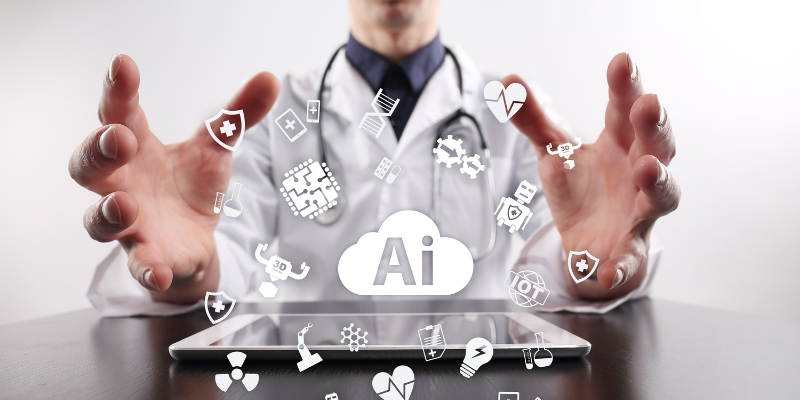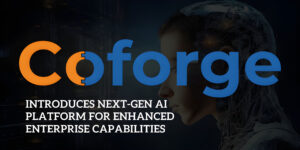With more than 1.4 billion people, healthcare has faced many challenges in meeting the needs of India’s vast population. Medicine and medical care currently struggle to “scale” in the sense engineers define scalability.
To ensure people benefit from high-quality care, simply training more healthcare providers and building additional primary care facilities is not a scalable solution. Rather, the key lies in harnessing artificial intelligence (AI) and data science to enhance the capabilities of each physician while improving the quality of care offered to each patient.
In other words, scaling medicine to empower physicians to treat more patients, at a lower cost, with higher quality, even as the burden on each physician is reduced. This approach could democratise access to exceptional medical care and realise the vision of top-tier universal healthcare.
India’s healthcare innovation landscape represents a $30 billion opportunity, projected to double to $60 billion by 2028, according to a report from Bain and Company. From pharma services to healthtech, med-tech, and biotech, the possibilities are vast.
By developing AI- and machine learning-based systems and applying them to the massive data available across India, engineers can collaborate with clinicians to improve the quality of healthcare, diagnose and treat diseases more accurately, and improve patient outcomes with a never-before-seen speed and efficiency.
How AI is revolutionising healthcare
As consumer demands fuel India’s healthcare revolution, there’s a need for global partnerships and innovations to strengthen local expertise. While inadequate infrastructure has long limited healthcare access, the emergence of the Internet of Things and AI is set to revolutionise healthcare with timely disease detection and precise diagnosis.
AI algorithms can analyse health histories in minutes, uncovering insights that would take human health workers significantly longer. By identifying underlying conditions and predicting chronic ailments, this approach can facilitate a shift from reactive to proactive treatment.
AI’s immense powers go beyond individual diagnoses. It can screen population data to find patterns that might otherwise go unnoticed, predicting potential disease outbreaks and enabling targeted resource allocation backed by judicious preventive measures to mitigate the impact of disease outbreaks.
The expanding capabilities of Gen AI are driving significant breakthroughs in drug discovery, diagnostics, and treatment modalities. By integrating AI into patient care, physicians can prescribe highly personalised treatments, enhancing patient outcomes while maximising resource efficiency.
In this rapidly-evolving healthcare landscape, AI-powered assistants are helping both patients and physicians. These virtual assistants perform tasks like monitoring health conditions, managing records swiftly, reminding patients to take prescribed medications, and scheduling appointments. They also facilitates remote monitoring through real-time data collection from wearable devices.
Leveraging natural language processing (NLP), these AI assistants can take notes, summarise doctor-patient interactions, and address patient queries. By automating administrative tasks, healthcare workers can focus on more complex, skill-intensive responsibilities.
New technologies like 3D printing are also making waves in healthcare. By enabling the creation of customised implants and prosthetics, these technologies are transforming dentistry and surgery, permitting medical professionals to build bespoke products that fit patients much like any made-to-order item.
While current mass-produced prosthetics can be uncomfortable and unappealing, additive manufacturing technologies ensures better fits and more comfortable, biocompatible devices. In the future, 3D printing could produce surgical tools, personalised prosthetics, and even transplantable organs.
Training and collaboration programmes
Developing a steady pipeline of health technology innovations requires nurturing emerging engineering talent that collaborates seamlessly with medical professionals. One example is IIT Delhi’s Master of Science (Research) Program in ‘Healthcare Technology,’ launching in January 2025.
The programme is designed to integrate medicine with engineering specialities to nurture “deep techinnovations in healthcare” through real-world applications. The course will allow healthcare professionals to pursue engineering studies alongside their medical practice, applying their learning to improve patient care outcomes.
Industry collaborations between Indian and US companies are key to strengthen bilateral relations. An excellent example is the Quad Vaccine Partnership formed during the pandemic. In March 2021, the two nations cooperated to distribute a billion COVID-19 vaccine doses across Asia. AstraZeneca’s vaccines were locally manufactured as Covishield by the Serum Institute of India and exported at the end of 2021.
The US NIH (National Institutes of Health) collaborates with India’s medical research community in biomedical and behavioural health sciences. Through the Indo-US Collaborative Programs, the NIH and Ministry of Science and Technology’s Department of Biotechnology focus on low-cost medical equipment, vaccine development, and diabetes and cancer research. A key success story is the Rotavac rotavirus vaccine–developed via an innovative PPP of the government, private and academic partners–which is now available in India and could save thousands of children’s lives annually.
This is just the beginning when it comes to Indo-US collaborations in healthcare innovation, paving the way for enhanced care delivery across India. The complexity and scale of healthcare data, combined with AI systems, have the potential to transform patient care, improve medical training, and streamline administrative processes.
Now is the time to reimagine the future of data- and AI-driven medical care, which could transform the practice of medicine in India and globally. More projects should soon emerge, even as varied challenges are addressed to improve overall healthcare outcomes.
(Ed Schlesinger is the Dean at Johns Hopkins Whiting School of Engineering)
(Disclaimer: The views and opinions expressed in this article are those of the author and do not necessarily reflect the views of YourStory.)










